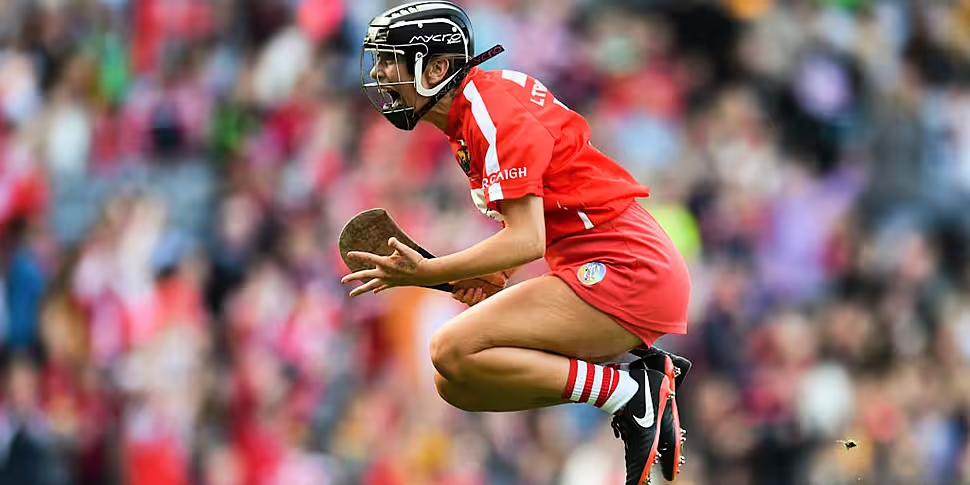Thirteen Irish female athletes from across a range of sporting backgrounds spoke to Arthur James O'Dea of OTB Sports about the challenges that face women in sport.
Inequality and unfairness have fewer places to hide in Irish sport.
Although some years must pass before the success of the 20x20 campaign can be measured, it has broadcast the challenges facing many women and girls in sport to a nationwide audience.
This removal of ignorance as an excuse for the mistreatment of female sport compared to its male equivalent is no mean feat.
Even in plain sight though, Irish society has often habitually overlooked injustice. Historically, the cruel brunt of this has regularly come down hardest on the country's female population.
A different nation now, perhaps, how has the experience of being a female athlete in Ireland changed? Yes, a national discussion is underway, but how far does action remain removed from well-intentioned words?
Across two weekends on OTBSports.com the product of conversations with 13 athletes will shine a light on these questions and more. This is the first of a two-part series.
*****
Femininity at its most brutally conventional is a perpetual disappearing act, an erasure and a silencing to make more room for men.
- Rebecca Solnit, Recollections of my Non-existence
My body is an argument I did not start.
- Morgan Parker, “And Cold Sunset”
Women didn’t put themselves in the corner and say, ‘We’re second-class citizens, forget about us.’ No woman said that.
- Ailish Considine, Clare & Adelaide Crows
*****
I. “I’m quite used to feeling like a second-class citizen with the GAA”
Ailish Considine (Adelaide Crows, AFLW): “It is constant the battle for equality and that bothers me deeply. Women have fought for years and in this day and age there’s just no excuse for us to be treated differently. But look, it feels like all we’re doing is fighting and looking for something. It can be so tiring.”
Laura Treacy (Cork Camogie): “You have little acts of sexism happening all the time, you know. If you address all of them publicly though, I mean, nobody wants to come across as always being negative.”
Caradh O’Donovan (Team Ireland Karate): “I know from experience that if you say something that offends the wrong person, life can become very difficult. It is very hard to explain this, but people can you make you feel very uncomfortable if they want. Sometimes, when you do speak up and nobody supports you, eventually you’ve just got to shut up talking.”
Áine O’Gorman (Ireland Soccer): “The inequality between male and female athletes is still pretty obvious to me in most sports. I like to think that things are changing in football when you look at the success of the Womens World Cup and the likes of the RTÉ coverage can have a big impact on changing attitudes about the female game, but there is still a lot to do.”
Lynne Cantwell (Irish Rugby): “There were lots and lots and lots of inequalities for me as a player and they played out in many practical ways. But the question is, were those inequalities because of resources or were they because of gender?”
Jessie Barr (Olympian, 2012): “Even the term ‘Women in Sport’ really bugs me now. We don’t say ‘Men in Sport’. All we’re talking about here is women doing sport. It is just sport.”
Sarah O’Donovan (Dublin Camogie): “My Dad never considered gender. I was the first born and I would have gone along to all of his training sessions. Up until about the age of 14 or 15 when I stopped hurling with the lads, that was when I started to notice certain biases there.”
Ailish Considine: “I’m quite used to feeling like a second-class citizen when it comes to the GAA. The organisation has been there for a long time now, and the same with both the LGFA and the Camogie Association. So, at this stage, things should be much more equal.”
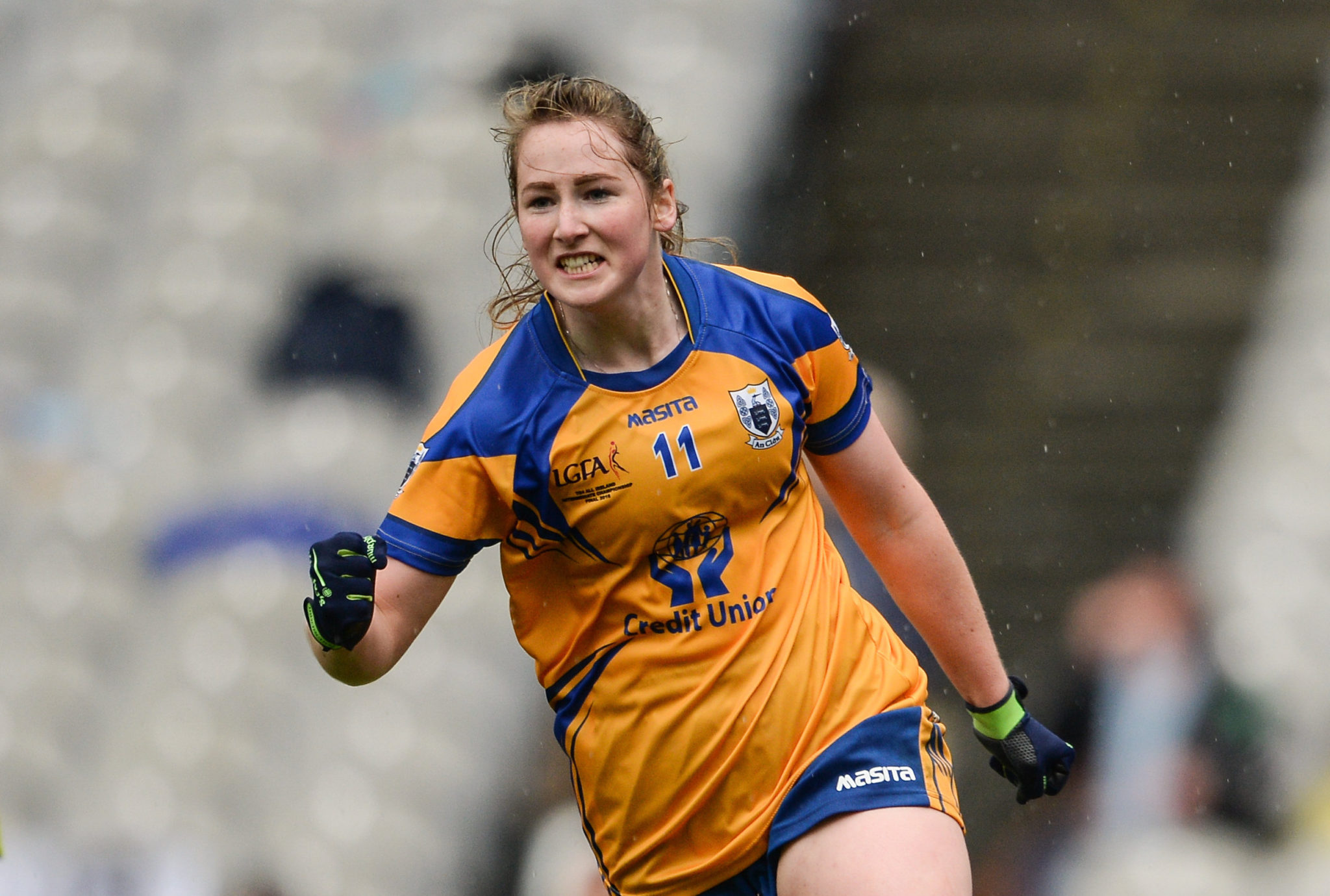 25 September 2016; Clare's Ailish Considine celebrates scoring a goal. Photo by Sportsfile
25 September 2016; Clare's Ailish Considine celebrates scoring a goal. Photo by SportsfileBreege Connolly (Olympian, 2016): “When I started running probably 15-years ago, prize money had already been equaled between male and female runners. I felt as if that fight had already been fought, you know. I don’t think I’ve ever had a negative comment directed at me for being a female runner. I don’t know what it is like to be a Gaelic footballer or a basketball player, but I just haven’t felt any unfairness at all as a female in athletics.”
Claire Mooney (Track Athlete): “What attracted me to athletics was that equality. To have a visible role model like Sonia O’Sullivan or Derval O’Rourke, that’s pretty special.”
Sarah O’Donovan: “Before Christmas I was actually offered the opportunity of managing the St Vincent’s U17s lads’ team, the hurlers and the footballers. My immediate thought was that this is huge, but am I doing women a disservice by jumping into the men’s game and not giving all my attention to the women’s teams? Who is going to lose out here? Do I need to take on this new opportunity so these young guys can see that a woman can do this job? That is probably the thing I am still struggling with now.”
Caradh O’Donovan: “In the last few years, maybe it is just maturity, but I’ve tried to look more objectively at what I can do. I try to do my best and then just forget about it. I don’t know if that’s a good thing or not, but it keeps me balanced. If you’re annoyed all the time, you can’t even enjoy the sport anymore.”
Linda Djougang (Irish Rugby): “We just need to give female athletes a proper opportunity to excel because I guarantee you, we will use the opportunity if we get it.”
Caradh O’Donovan: “But look, I am naturally an outspoken person and I’ll continue to get backlash from that.”
Ailish Considine: “A lot of the time men just do not realise how much a woman will have to have fought to get to a certain point. It can be a hell of a lot harder.”
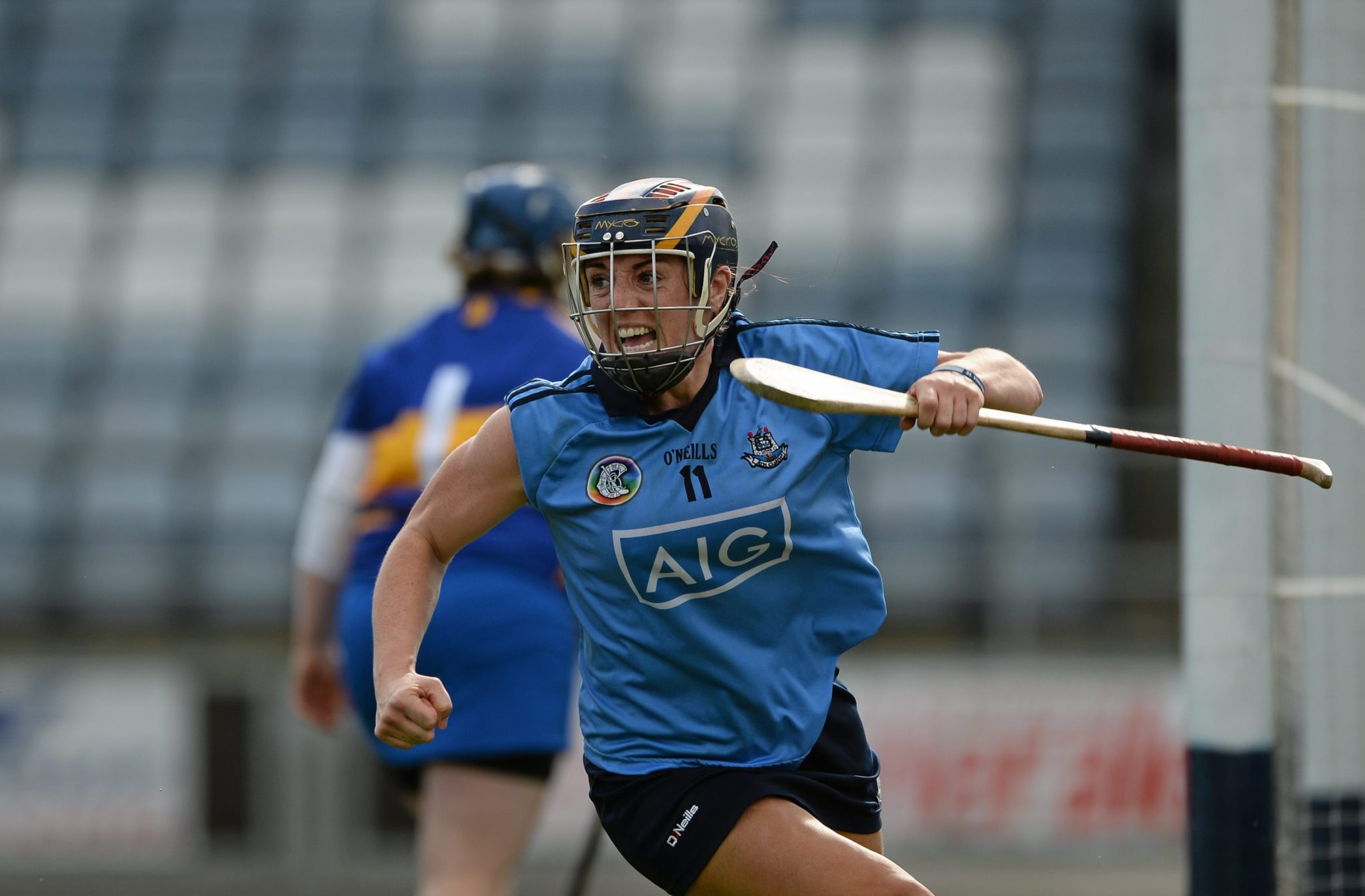 4 July 2015; Sarah O'Donovan, Dublin. Picture credit: Sportsfile
4 July 2015; Sarah O'Donovan, Dublin. Picture credit: SportsfileII. “Keep the girls off the good pitch”
Ciara Trant (Dublin, LGFA): “Sexism is so embedded in society that you might not necessarily notice it or even think much about it. Even the other day I did this thing where I had to say, ‘My name is Ciara Trant and I play with the Dublin Ladies football team.’ My sister gave me a sort of look then to sort of say, why did you say ‘Ladies’ there, and that sparked a whole conversation. Why didn’t I just say I played for Dublin? It is obvious I’m a girl.”
Lynne Cantwell: “There are loads of examples, you know. The men’s team walking into Dublin airport and getting on a chartered flight to Wales while we’re flying Ryanair to Bristol before traveling down. Is that down to resources or inequality? It depends on your interpretation.”
Caradh O’Donovan: “We would have received prize money from some of the competitions we went to and if you won that competition as a female athlete, you got half the prize money that your male counterpart got. That’s only changed recently. When I would have spoken out about it though, I’d be branded a ‘diva’ or difficult to work with.”
Ailish Considine: “Even at this stage, if you’re walking into an interview to be an S&C coach with a men’s team, straight away if you’re a woman you have to prove yourself 10-times more than a man would in that situation. Regardless of your qualifications, in those lines of work that are male dominated, you have to prove yourself more.”
Áine O’Gorman: “I would have played with a boys team growing up. With one club we went to play regularly enough, I would get a bit of verbal abuse and I did feel a bit targeted. Maybe because it was one of our most competitive rivals and maybe it was because they felt a bit threatened. I wouldn't have let that bother me too much in the build-up to the game, but it would have made me feel a bit uncomfortable in the moment. I learned to use it as a motivator though."
Sarah O’Donovan: “Ballygarvan would have been my local team and we were a really good country club. Our senior camogie team was very successful and the club recognised that in so far as we would always have the main pitch for training for a period there of about 15 years. Somewhere along the line though, a group of young lads set up a Facebook page called ‘Keep the Girls off the Good Pitch’. Now, I do not know where that came from. It seemed to be in jest at first, but it became uncomfortable. They had no respect for us if they think it is alright to set up this Facebook page. There was just no need to be negative at all.”
Laura Treacy: “I won’t name the camp, but I know that one of the Cork girls worked a camp last year alongside Cork hurler and there was a pay difference. My friend, the Cork senior camogie player, got paid less than the Cork senior hurler. Why? That is all wrong.”
Lynne Cantwell: “The challenges we faced were kind of epitomised by the instance in 2012 where we had to take the overnight train from Paris down to Pau for a game because we had missed a connecting flight. We get off this train then at 7.30 am in the morning and told to go to bed and not wake up until there’s a knock on the door. The team manager was still trying at this stage to negotiate with the French manager that the kick-off time could be pushed back so we could get a bit more sleep. Anyway, that didn’t happen due to broadcast rights and we get a knock on the door at 10:00 am. We went to play a Six Nations then. Now, there were logistical errors, but why? Was that down to resources? Sure, but who decided what resources we do get?”
Caradh O’Donovan: “When I would raise the question then about the women’s prize money being less than the men’s then, that rubbed certain people up the wrong way. You might only have one or two seriously misogynistic guys involved in the sport, but they tended to be in positions of power and they didn’t take being criticized very well. Sometimes people have mentioned it to me years later, ‘Oh, such and such said you were so difficult but it doesn’t match when I’ve met you face-to-face.’ It is very covert. One or two guys who will try to ruin your credibility if you speak up.”
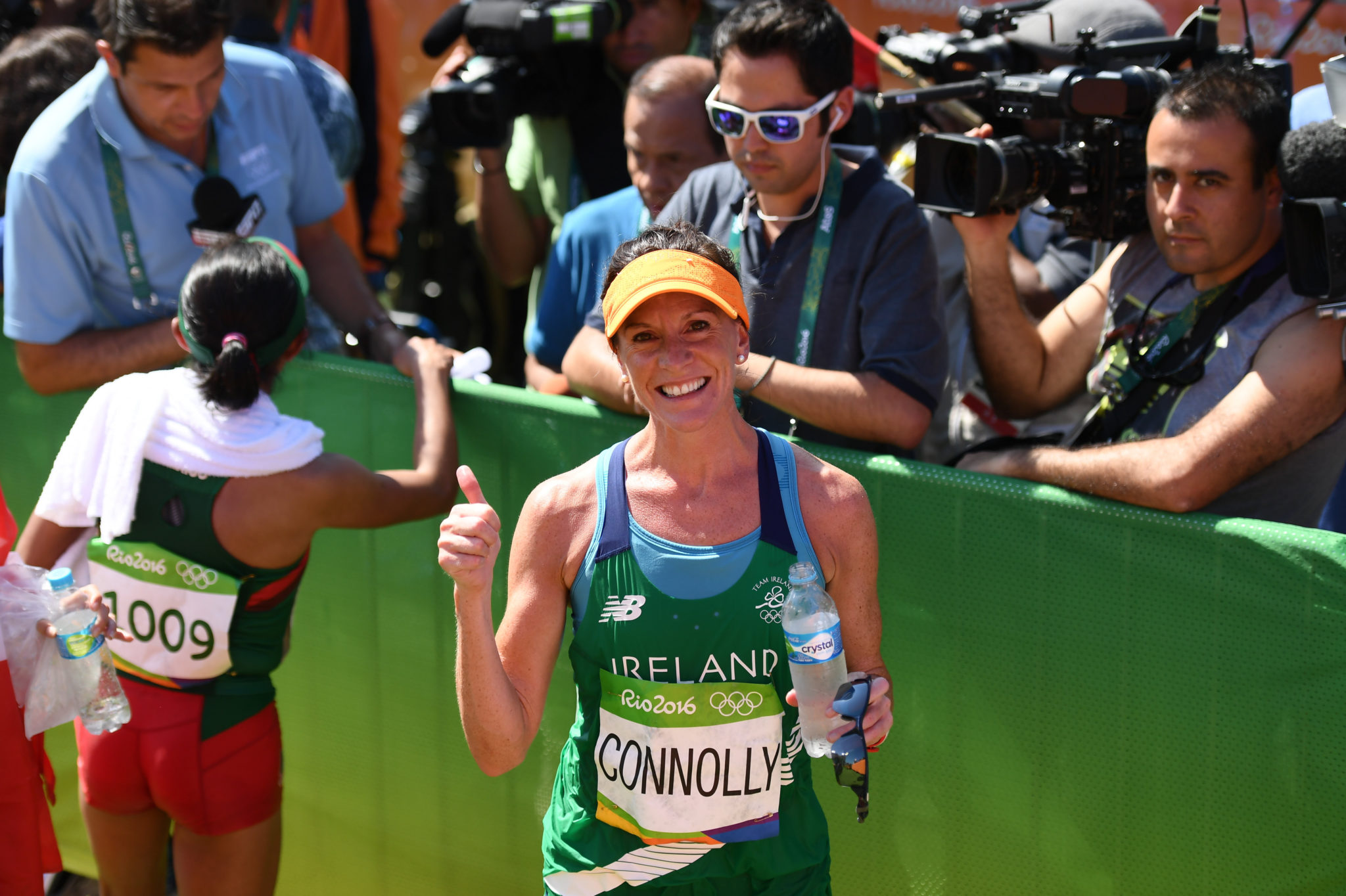 14 August 2016; Breege Connolly of Ireland during the 2016 Olympic Games in Rio de Janeiro. Photo by Sportsfile
14 August 2016; Breege Connolly of Ireland during the 2016 Olympic Games in Rio de Janeiro. Photo by SportsfileBreege Connolly: “Sexism hasn't been a part of my life in sport which is great to be able to say. Along with my own drive, the reason I reached the Olympics is down to men. I couldn't have done it without a couple of men who backed me."
Kerry O’Flaherty (Olympian, 2016): “Athletics is a sort of mixed sport where you’ve got males and females competing together at the one competition. I’ve always had a lot of respect from men in my running club. They would look up to me and would come to ask for advice. In that respect, it can be hard for me to comment about sexism because I’ve not had a first-hand experience of it myself.”
Claire Mooney: “I would have played a bit of GAA when I was younger, and it always felt like more attention was given to the boys in school. It seemed unfair even from that young age. With athletics, I had heroes in the sport growing up who were female.”
Jessie Barr: “There is an understanding within athletics that the differences between male and female athletes aren’t reason to pick one over the other. You will compare male and female athletes to the other male and female athletes they are competing against. In other sports, I feel that a different attitude exits. ‘Oh, the women just aren’t as skilled as the men.’ In athletics, we’re a bit luckier in that regard.”
Breege Connolly: "I was a late starter to the sport. I had already embarked upon a career in tech and from the age of 18 to about 23, I just worked and lived the life and then I fell upon running. I've only ever known what it's like to work and train. To be honest, I've always found that working a desk job is really complimentary to my life as a runner. I can spend my lunch break running then I’m home by half-five in the evening so I’ve the whole evening to get a second run in, or if it is a session day I just head from work to the track no issues.”
Claire Mooney: “I’ve always been treated as an athlete first and foremost. Even in school and work, I haven’t really had any negative experiences. I think that things should be that way and attitudes are changing I believe. When I went to graduate school in UCD, I felt very well treated. In America, all the teams were treated equally. Even in terms of even media coverage, the school covered us all equally. They made a big effort.”
Molly Scott (Track Athlete): “I consider myself to have had a pretty privileged teenage experience competing all over the world for Ireland. It was a bit different though having my mum as my coach. We were always confident in our own abilities, but there were plenty of comments made too.”
 Kerry O'Flaherty; Jessie Barr; Molly Scott; Claire Mooney. Picture credit: Sportsfile
Kerry O'Flaherty; Jessie Barr; Molly Scott; Claire Mooney. Picture credit: SportsfileJessie Barr: “I was only doing a webinar recently for a group of students in a swimming club. I had been trying to find newspaper clippings or articles online where they would be highlighting some bad years that I’d had. There was one from a European final where the headline had started with something like, ‘Barr disappoints…’. There were a few comments below it and out of curiosity I had a look. But that jogged my memory. This is where all the nastiness festers. ‘Oh great, maybe she can go an eat something now.’ That was a comment written under another article where I’d not made the time to qualify for the 2012 Olympics in the hurdles. Now, I’m just a naturally skinny person and I always have been. This wasn’t a common occurrence like, but my body was definitely something that would be pretty freely commented upon. ‘You don’t really look like a sprinter, you’re a bit frail looking.’ OK, that’s fine, people used to say Usain Bolt was too tall to be sprinter. But it was always about my being too skinny. Would a man have gotten that comment underneath?”
Molly Scott: “I remember being in the gym before and my Mum was helping me. Anyway, she walked away for a moment and this guy came over to me. ‘Maybe you should leave your Mum outside the gym.’ I have had so many people tell me that the mother-daughter coaching relationship can never work. When I was younger people would accuse my Mum of being a pushy parent. I distinctly recall one man telling my parents to ‘bring her home and let her play with her dollies.’ What does that mean?”
Breege Connolly: “I was a worker before I became a runner. From the age of 18 until I was about 23, I had been working. Then I fell into running. So, I knew what it was like to work first. It would be foreign for me to be a full-time athlete. I work a desk job and it is so complimentary to my life as a runner. Mostly, I’ve worked 9-5 jobs so I can spend my lunch hour running and I’m home by half-five in the evening so I’ve the whole evening to get a second run in, or if it is a session day to go from work to the track.”
Jessie Barr: “It was always my plan to go to three Olympics and then retire in my early 30s. I always remember then my Granny or someone asking me, ‘So, when are you going to start a family? The clock will be ticking.’ Obviously, biologically speaking, a man doesn’t have to factor in having kids. But it did feel unfair that when a woman hits a certain age these things must be decided upon.”
III. "I don’t look at the colour of my skin because I already know who I am."
Linda Djougang: “One of the things that made me fall in love with rugby was that I was accepted. I vividly remember going to a football club and being told that I was too physical for the game, that I didn’t have the right kind of body. As a teenage girl, something like that makes you question your whole being. I was too strong, too physical, too masculine. Society has told me that my body isn’t right, but why does someone think they have the kind of authority to say that to me? Who gave these people power? I stopped playing sport for a while because I felt like my body wasn’t right, that I didn’t fit in anywhere. How do you expect a child to look in the mirror every single day without remembering that they were told their body isn’t right?
“Growing up, I was always described as being very strong. ‘Oh, isn’t she very powerful.’ It was always a discussion about my physical features. Now, I know I am strong. My Dad used to always complain about it when I was younger, and he had to stop me washing the dishes because I would be breaking the plates or the wine glasses. Getting out of the car, I would think that I had closed the door gently. ‘Linda, you’re going to break that window.’ I was being so gentle. I didn’t think much of it though until it became something that was talked about outside of the house.
"I have had loads of comments from strangers about what they see. They never comment about who I am. If I feel good in my body, who are you to tell me it is not acceptable? Why are we quicker to pick on women than men? What is the perfect body? So, thank God rugby came into my life. It didn’t try to change who I am, and it accepted me for who I am. No matter what shape you are, rugby has a home for you.
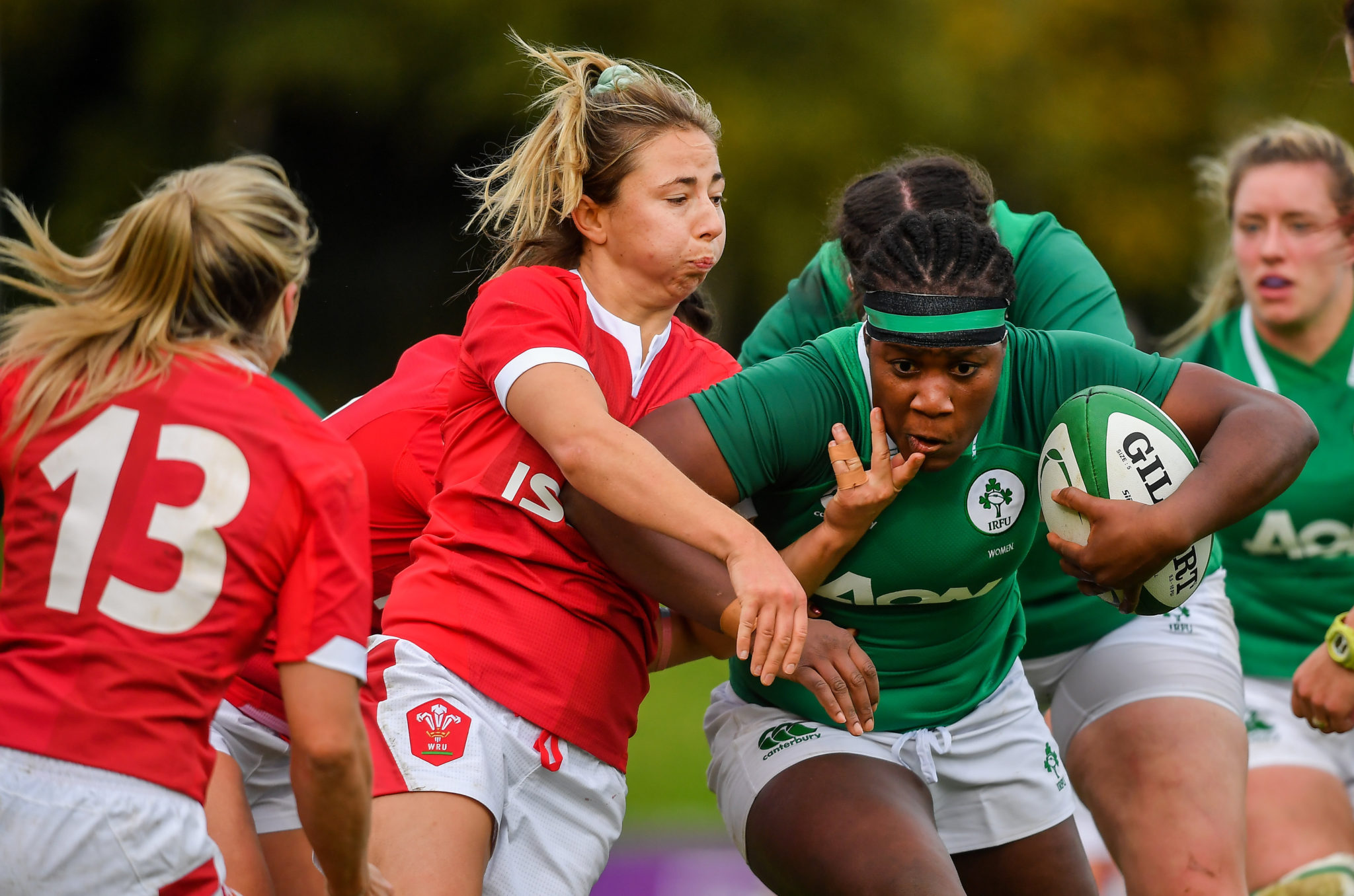 10 November 2019; Ireland's Linda Djougang in action against Wales. Photo by Sportsfile
10 November 2019; Ireland's Linda Djougang in action against Wales. Photo by Sportsfile“Nobody ever really taught me about the impacts of racism. I had to teach myself not to pay attention. I had to teach myself that I would have to work twice as hard as the people around me. I am different. So, no matter what I do, I need to do it better. I’ve always had that mentality in my mind. I don’t see the difference as a barrier. I don’t let myself. I don’t look at the colour of my skin because I already know who I am. I know where I come from. I know my heritage and it is something that I have come to accept and love. I am not successful because of the colour of my skin, but for what I do.
“I’ve had people calling me names though, people spitting at me, but yeah, you just think, fine. People ask questions about my hair, the colour of my skin and you just don’t think much about it because I’ve been raised to think that it is just a part of my life. When the whole Black Lives Matter movement sprung up then this year, it just dawned on me that, ‘Oh, God, I can actually talk about this.’”
Download the brand new OffTheBall App in the Play Store & App Store right now! We've got you covered!
Subscribe to OffTheBall's YouTube channel for more videos, like us on Facebook or follow us on Twitter for the latest sporting news and content.

